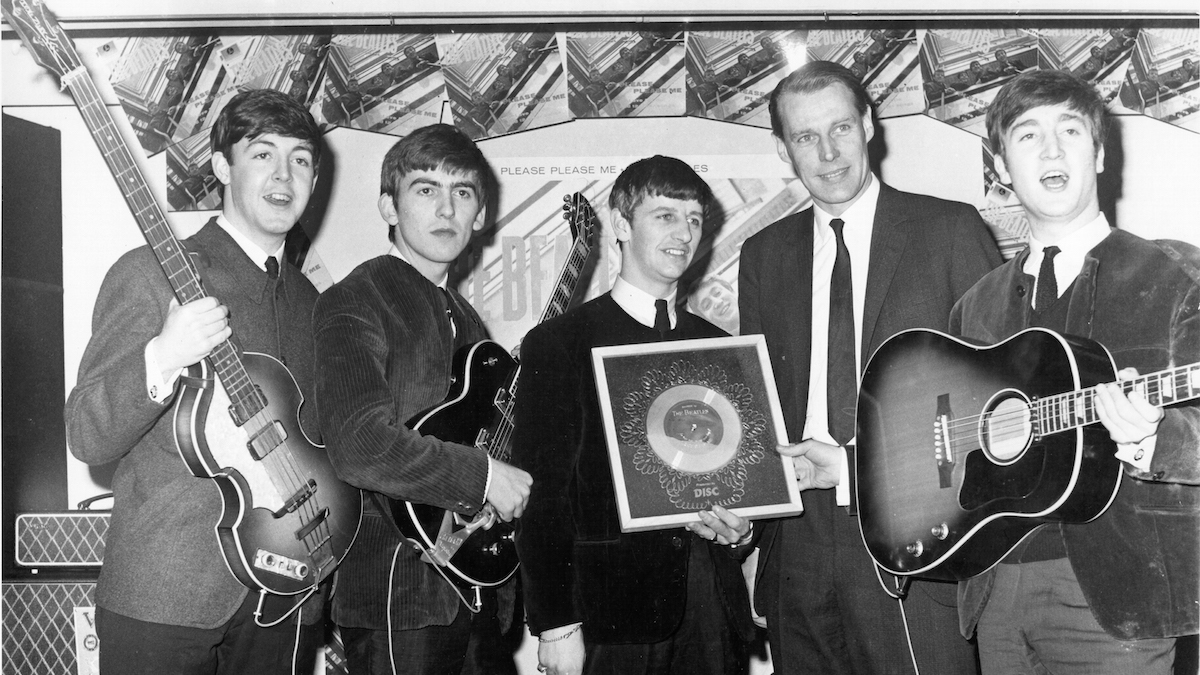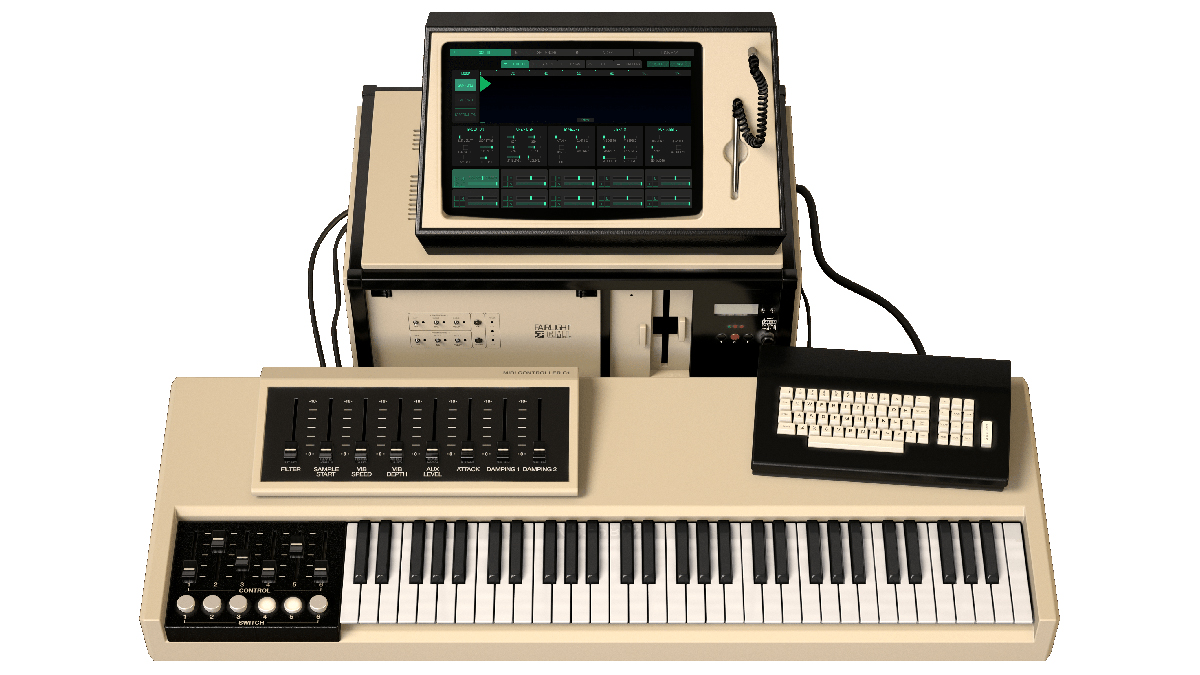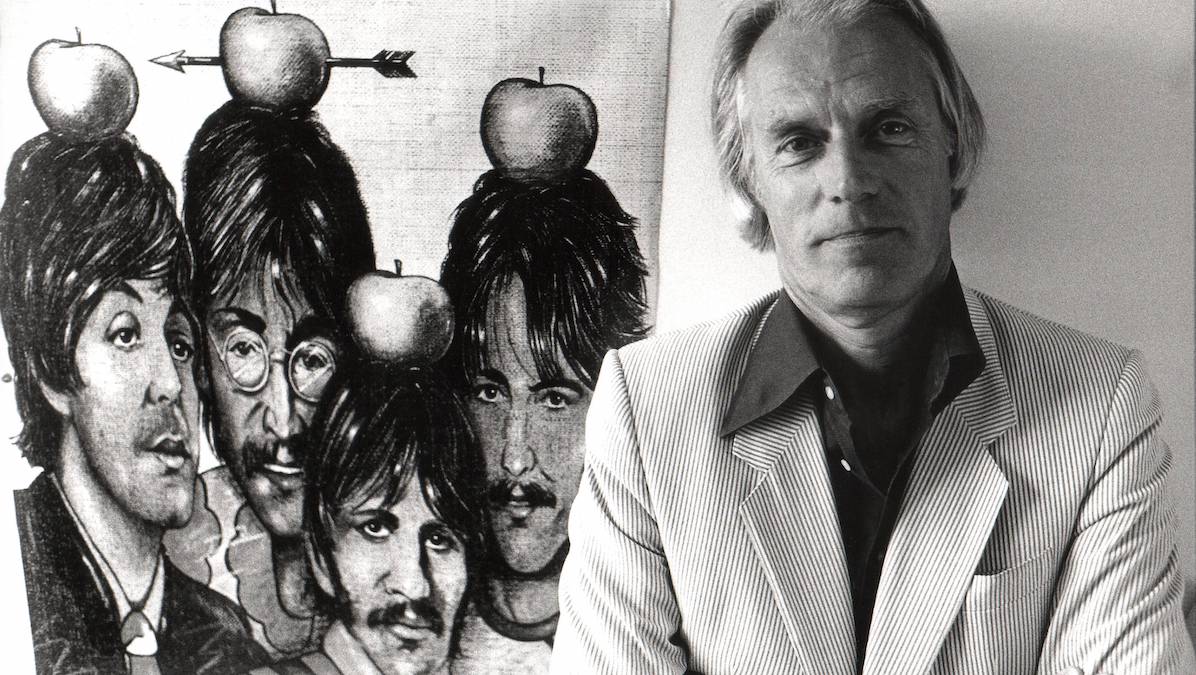"I doubt we will have anyone breaking through in the kind of monumental way that The Beatles did, or like The Who or The Rolling Stones": George Martin correctly predicted the future in 1983. Or did he?
Well, Taylor Swift fans might disagree…

Want all the hottest music and gear news, reviews, deals, features and more, direct to your inbox? Sign up here.
You are now subscribed
Your newsletter sign-up was successful
We love a classic interview where someone famous either nails a future prediction or, better still, they fail miserably at it, so we can gently mock them. We've discovered one that definitely sits in the former camp, and it's with none other than Beatles legend George Martin.
Back in 1983, Martin had, of course, moved on from producing The Beatles and onto other projects including setting up AIR Studios in Montserrat – a fascinating story in itself, which we go into here. That didn't mean he would ever stop getting asked about the band though, but he was always more than willing to talk about them.
It was also the year Martin had written his book, Making Music: The Guide to Writing- Performing and Recording, a compilation of his own "little tricks of the trade" and those from a vast number of his contacts, from Adam Ant to Hans Zimmer. And it was this book that he was being interviewed about in the November issue of Home & Studio Recording.
In the first part of the interview Martin revealed details about his ongoing love for innovative studio technology, a notable example of which was his employment of one of the first synthesisers, a Moog Series 3, in the recording of The Beatles Abbey Road album. (Check it out in the track Maxwell's Silver Hammer above.)
A Fairlight is a marvellous machine, you can waste an awful lot of time with it, it's great to play with
George Martin
"Consequently as each new thing came out I was very anxious to learn what it could do for me," he said in the interview of his subsequent embracing of new technology. And he then revealed that, as well as being one of the first producers to record the synthesiser, he was also one of the first to experiment with the then all-new sampling power of the Fairlight.
"There are so many new tools, so many little toys. I tend to have my favourites, I mean there are certain things which are so marvellous but they do take time, a thing like the Fairlight for example. A Fairlight is a marvellous machine, you can waste an awful lot of time with it, it's great to play with."

In the second part of the interview, the questioning inevitably turned to The Beatles, with the interviewer asking which of the then current crop of 1983 artists Martin considered were comparable to the Fab Four.
Want all the hottest music and gear news, reviews, deals, features and more, direct to your inbox? Sign up here.
You've got to be head and shoulders above the rest, but the rest are so tall now that it's very difficult
George Martin
"One of the difficulties is that so many people are so good and the competition is getting so fierce," he responded, "that I doubt whether we will have anyone breaking through in the kind of monumental way that The Beatles did, or like The Who or The Rolling Stones.
"To get into that kind of classic category, I think you've got to be head and shoulders above the rest, but the rest are so tall now that it's very difficult."
Which could be read that The Beatles were only huge back in the 1960s because the bands around them weren't, but knowing Martin as we think we do, he was really just bigging up the bands of '83, not dissing those of '63.
Martin's prediction has arguably become true, but not perhaps for the reasons he spelled out. The massive shift in the way music is now consumed has meant that it's virtually impossible for any band to now sell the kinds of records The Beatles once did. Because streaming is now such a widely used way of consuming music, it is truly unlikely that anyone will ever match those sales again.
However, success is measured very differently these days too, often in touring stats rather than in record sales, so in that sense, there are probably a few Taylor Swift fans out there who might not agree with us or Martin.

Other Martin predictions in the interview are probably best left back in 1983, like one where he foresaw the demise of decent lyric writing, "I'm afraid the golden age of lyric writing is slipping from us".
However, Martin's final comment on technology was particularly noteworthy, and probably as relevant today as it was 41 years ago.
"We've now got our technology into such a state that we can make virtually perfect recordings and that throws even greater emphasis on the content, which means we are back into the business of making music and not making technical things. Making music is the most important thing of all."


Andy has been writing about music production and technology for 30 years having started out on Music Technology magazine back in 1992. He has edited the magazines Future Music, Keyboard Review, MusicTech and Computer Music, which he helped launch back in 1998. He owns way too many synthesizers.

